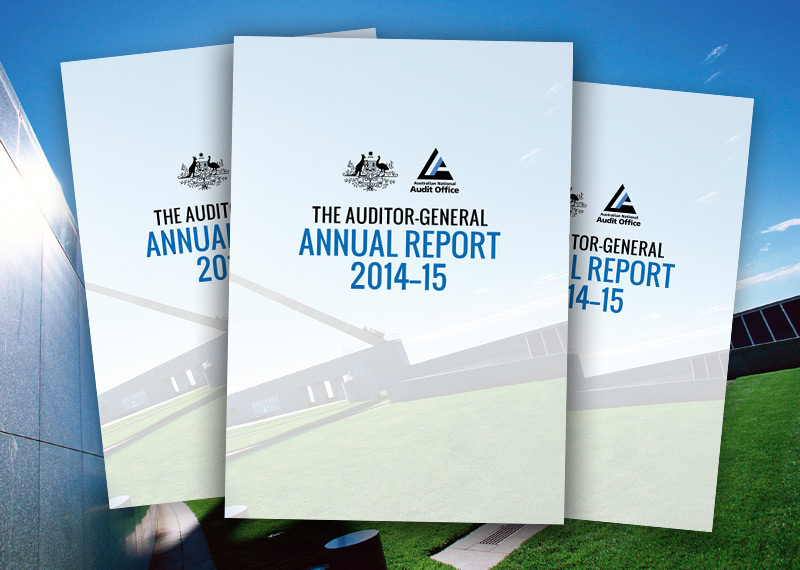Browse our range of reports and publications including performance and financial statement audit reports, assurance review reports, information reports and annual reports.
Mr Ian McPhee - Deputy Auditor-General, presented at the CPA Australia Seminar
The Management and use of Double Taxation Agreement Information Collected through Automatic Exchange
The objective of the audit was to review and assess the use, and management of, automatic exchanges of information under Double Taxation Agreements (DTAs) by the Tax Office.
This annual report documents the performance of the Australian National Audit Office (ANAO) in the financial year ending on 30 June 2015. It addresses the Requirements for Annual Reports for Departments, Executive Agencies and Other Non‑corporate Commonwealth Entities approved by the Joint Committee of Public Accounts and Audit in June 2015; the performance measures set out in the outcome and programs framework in the 2014–15 Portfolio Budget Statements; section 28 of the Auditor‑General Act 1997; and other annual reporting requirements set out in legislation.
- Decisions to change, or remove, contracted key performance indicators should be carefully considered, including having regard to the value for money considerations from the procurement process that led to the contract(s) being signed. This also applies where there have been significant changes in the nature of the services being obtained under a contract from the procurement opportunity offered to the market. It is inconsistent with the principles espoused in the Commonwealth Procurement Rules for entities to approach the market seeking particular services for the entity to then substantively change, or add to, those services after the successful tenderer has been selected.
- Contract variations should be undertaken through the process set out in the contract. The reasons for any variation should be clearly documented. Variations should not be used to address poor performance or serious underlying problems. The effect on original timeframes, deliverables and value for money should be assessed to form a judgment whether any proposed variations represent value for money having regard to the procurement process that resulted in the contract being entered into.
The objective of this performance audit was to assess the administration of the National Black Spot Programme. It was undertaken in a manner similar to the audit of the Roads to Recovery Programme. Specifically, the audit approach involved:
- examination of DOTARS records and discussions with officers in DOTARS and four of the State road transport authorities responsible for administering the Programme;
- analysis of project monitoring, reporting and payment arrangements; and
- selecting a sample of 45 LGA areas across four States so that ANAO could examine projects delivered with Commonwealth funding.
The objective of the audit was to examine whether the UP and CPP services provided by the Australian Federal Police Protection Service are being managed effectively. In particular, the audit examined:
- whether the Protection function has been effectively integrated into the AFP, and sound arrangements are in place to strategically plan Protection services and manage risks;
- whether Protection staff have access to appropriate training and guidance; and
- the management arrangements for UP and CPP services.
Mr P.J. Barrett (AM) - Auditor-General for Australia, presented an address to SES Officers in the Australian Customs Service, Canberra
- Board committees should receive reporting that relates to the range of functions set out in their charters to ensure they can support the board in the way intended. This is critical for audit committees in performing their required functions under the Public Governance, Performance and Accountability Act 2013.
- Central agencies can contribute to improved public sector performance by modelling the adoption of better practice in their own execution of functions under the frameworks they administer, and in so doing promote better practice across the sector.



